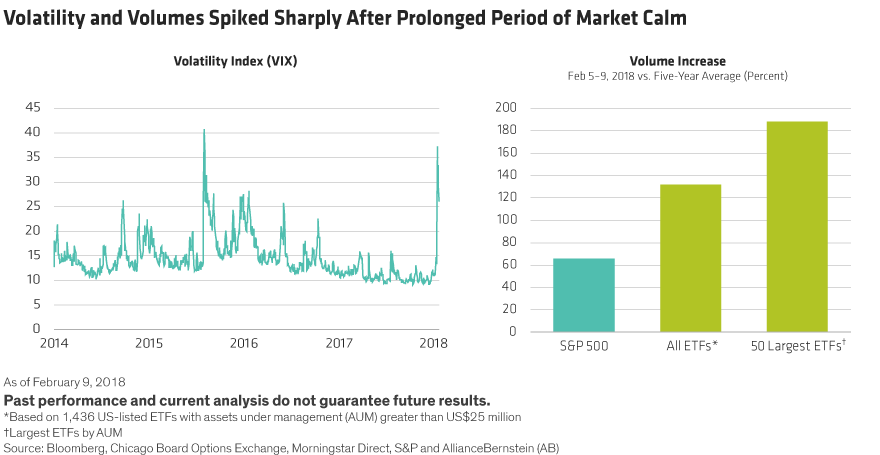Why the US Government Should Guarantee Your Mortgages - Context
by Fixed Income AllianceBernstein
Congress may finally be inching toward an overhaul of the US housing finance system. That’s good. But getting reform right is more important than getting it done. To us, that means ensuring the government retains a clearly defined role in the mortgage market.
Policymakers have been trying to reform housing finance for nearly a decade, and shrinking the government’s footprint is a priority for many of them. In fact, one of the several proposals that have surfaced in recent years envisions no government involvement in the mortgage market at all.
It’s not hard to see why. When the US housing bubble burst in 2008, government-sponsored enterprises (GSEs) Fannie Mae and Freddie Mac suffered massive losses, forcing the government to take over both and the taxpayers to foot the bill. Who wouldn’t want to avoid a repeat performance?
An Explicit Government Guarantee and a Cushion for Taxpayers
We agree that the system needs reform and that taxpayers should be partly insulated against future losses. But a housing market entirely without government involvement is unrealistic. Housing is crucially important to the health of the US economy, and it’s hard to imagine any government—today or tomorrow—sitting on its hands in a future crisis. That’s why we think the government should explicitly guarantee securities issued by Fannie and Freddie or their successors.
That’s not to say taxpayers should bear the risk alone. Investors, too, should be on the hook if loans default. Fortunately, the GSEs have already made considerable progress on this with the introduction of credit risk transfer (CRT) securities, which require private investors to absorb a share of the losses when there are defaults.
We think there’s room to expand this approach and would support reform that requires a significant private capital cushion before the government guarantee kicks in. It’s also important that the guarantee be appropriately priced. We suggest this premium be deposited in a government-established mortgage insurance fund to help set a fair price.
Keeping What Works
But what’s most critical, in our view, is that reform preserve the parts of the current system that work. For example, agency mortgage-backed securities issued by Fannie and Freddie make up one of the largest and most liquid fixed-income markets in the world. Global investors provide more than $5 trillion in mortgage financing, which helps to keep credit available and allows borrowers to lock in rates when they purchase or refinance a home.
What keeps this diverse base of global investors coming back to this market? Three things: liquidity, the agency bonds’ yield pickup over Treasuries and the government guarantee. The third one is important. If government involvement were eliminated, many of these buyers would likely disappear.
How would mortgages be financed instead? Probably in the same way as before the advent of securitization: banks would make mortgage loans and hold them. Without the GSEs to buy mortgages and repackage them into securities, credit would be constrained. That would result in higher mortgage rates and likely shut many potential borrowers out of the market.
Another likely casualty of taking the government out of equation? The 30-year fixed-rate mortgage. This loan is the go-to form of financing for most borrowers, making it the backbone of the US mortgage market. But it’s not clear it would survive without a government guarantee, because investors might balk at assuming all the duration and default risk. The loan’s disappearance would be highly disruptive to the housing market and would likely reduce home sales and home prices.
Keep Fannie and Freddie—or Something Like Them
Whatever shape reform takes, we think building on the invaluable expertise and infrastructure of the GSEs is essential. That’s why we think a new system should either retain the GSEs under their existing charters or re-charter them into similar entities.
We would support giving the GSEs’ regulator, the Federal Housing Finance Agency (or a successor regulator), the power to charter additional guarantors, though we would set the bar high for this. The regulator should maintain sweeping oversight over GSEs or their successors.
A move toward a single agency security and the development of a common securitization platform should also be part of a reformed finance system.
Getting Reform Right
US government involvement in housing stretches back more than half a century. Through various tax incentives and the GSEs, policymakers have created a deep and liquid fixed-income market that’s been instrumental in reducing mortgage rates and promoting home ownership.
We certainly understand and share the concerns of those who want to protect taxpayers from having to foot the bill for future losses, and we strongly support measures that would require investors to assume more credit risk. The CRT market does just that and provides a road map that can take us there.
A durable housing finance system is critically important to the US economy. We’re excited about the prospect of reform. But let’s be sure to get reform right.
Copyright © AllianceBernstein











